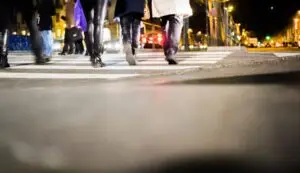Your loved one vanished out of the blue. You’re in panic mode, desperate to find them safe. You rush to contact the police, but then it hits you – you don’t have all the details they need to effectively search for your missing family member or friend.

When someone goes missing, the info you give law enforcement can make or break their chances of tracking that person down quickly. If you leave out vital facts, it ties the cops’ hands and ruins their shot at a successful recovery.
So today, we’re going through the crucial details you gotta provide the police when reporting a loved one missing. Listen up close, because knowing this stuff could mean the difference between your loved one coming home or not.
The Basics: Who Are They?
First up are the basics that let police identify exactly who they’re looking for. When you call it in, make sure you have:
- Their full legal name (and any nicknames/aliases they use)
- Their date of birth (or rough age if unsure)
- A detailed physical description – height, weight, eye/hair color, distinctive marks like tattoos, etc.
- A current photo of them (super important for missing posters/alerts)
This core info lays the groundwork for the whole investigation. With it, police can quickly start spreading the word about who’s missing.
Last Seen: Where’d They Go?

Probably the single most critical thing you can tell cops is where and when your loved one was last spotted. They need:
- The last known location’s address or landmarks (or GPS coordinates if you got ’em)
- The exact date and time they went missing
- Names and contacts of anyone they were with
- What they were doing (work, errand, event, etc.)
- How they got around (vehicle details, public transit, etc.)
These last known whereabouts let investigators retrace the missing person’s final steps to hopefully uncover witnesses or clues about their current whereabouts.
Their Life: Habits, Relationships, & Routines
Next up, you’ll want to paint a full picture of your loved one’s daily life for the cops. This means dishing on stuff like:
- Their job/school schedule and routines
- Hobbies, sports, clubs – anywhere they regularly went
- Relationship status (spouse, dating, close friends)
- Any physical/mental health issues that could explain erratic behavior
- Recent major life stresses (job loss, breakup, money troubles)
These personal details give crucial context about your loved one’s typical patterns and mindset. It allows investigators to determine if the disappearance seems out of character or not.
Their Digital Trail

This includes:
- Usernames/profiles on social media (Facebook, Twitter, etc.)
- Email accounts and messaging apps they use
- Their cell phone number and carrier
- Laptops, tablets, gaming systems they access
Having access to these digital channels is a potential goldmine of recent communications, location data, or online activity that could reveal where they went.
For example, in the 2018 case of missing University of Utah student Mackenzie Lueck, analyzing her texts, Lyft records and social accounts was key to finding her remains and making an arrest.
What’d They Leave Behind?

Another big clue is what belongings or valuables your loved one may have left at home, work, or wherever they went missing from. Tell cops if any of the following seem to be unaccounted for:
- Their wallet, purse, backpack and contents
- Sentimental jewelry or other prized possessions
- Clothing and accessories they were last wearing
If their must-have items are gone but unimportant stuff was left, it could indicate if they planned on returning or not.
Their People: Friends & Fam
Finally, you’ll want to provide contacts for people close to your missing loved one who may have insights to share, like:
- Best friends and close family members
- Co-workers, classmates, teammates
- Neighbors who may have seen something
- Counselors or support groups they confided in
These are the people who know your loved one best and might be holding the key details to help crack the case.
Look, every tiny scrap of information matters when someone vanishes. The more complete facts you can feed the cops upfront, the better head start they’ll have on putting the pieces together to locate your loved one fast.
So take a deep breath and try to recall every last relevant detail about your missing friend or family member – where they were, who they knew, what they owned, how they thought and behaved. It could mean the difference between them slipping through the cracks or being found safe and sound.
Stuff to Have on Hand

To make sure you’re prepped in a worst-case scenario, gather the following info about your loved ones ahead of time:
- Full legal names and any nicknames/aliases
- Birthdates and ages
- Current/recent photos (full body and close-ups)
- Identifying features (height, weight, hair/eye color, tattoos, scars, etc.)
- Vehicle details (make, model, color, plate number)
- Places they frequent (home, work, hangouts, etc.) and their routines
- Contacts for close friends, family, co-workers, etc.
- Mobile numbers and service providers
- Emails and social media accounts/usernames
- Any physical/mental health issues or meds they’re on
- Recent life stresses like money, relationship, or job troubles
Have this info compiled in an easy-to-grab file, document, or note so you can quickly reference and rattle it all off if the worst happens. Those first few hours are crucial for giving investigators their best chance at a safe recovery.
The Takeaway
The speed and accuracy of the details you can furnish cops with when first reporting a loved one missing is absolutely pivotal. Leave out or fudge too much info, and you severely handicap their efforts from the jump.
But if you prepare now and have all those vital personal, digital, and activity details at the ready, you give law enforcement a massive head start on generating real-time leads to help track down your loved one before it’s too late.
No one ever wants to imagine a loved one going missing. But knowing exactly what to tell the cops if it does happen could be the difference between those agonizing what-ifs and them making it home alive.

